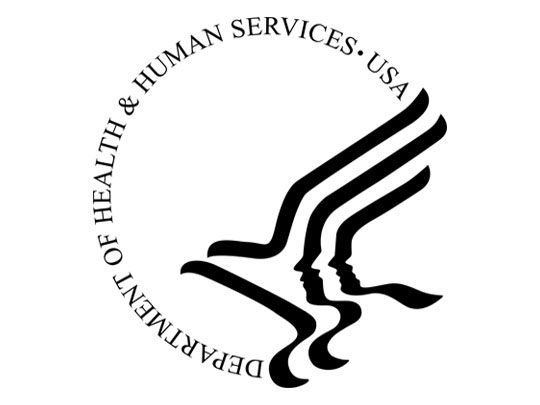HHS Amends PREP Act Declaration, Including to Expand Access to COVID-19 Countermeasures Via Telehealth

Cross-posted from HHS Newsroom
[On December 3rd] the U.S. Department of Health and Human Services (HHS) issued a fourth amendment to the Declaration under the Public Readiness and Emergency Preparedness Act (PREP Act) to increase access to critical countermeasures against COVID-19.
“During the pandemic, the Trump Administration has made broader use of the PREP Act to expand access to potentially life-saving countermeasures than we’ve ever done before in a public health emergency,” said HHS Secretary Alex Azar. “This new use of the PREP Act will help expand access to important services via telehealth, increase availability of authorized PPE, and make it easier to administer eventual COVID-19 vaccines.”
Among other things, the amendment:
- Authorizes healthcare personnel using telehealth to order or administer Covered Countermeasures, such as a diagnostic test that has received an Emergency Use Authorization (EUA) from the Food and Drug Administration (FDA), for patients in a state other than the state where the healthcare personnel are already permitted to practice. (While many states have decided to permit healthcare personnel in other states to provide telehealth services to patients within their borders, not all states have done so.)
- Provides an additional pathway to satisfy the Declaration’s Limitations on Distribution section. Now Covered Persons have immunity under the PREP Act if they use on-label Covered Countermeasures1 licensed, approved, cleared, or authorized by the Food and Drug Administration (FDA) (or that are permitted to be used under an Investigational New Drug Application or an Investigational Device Exemption) to combat the COVID-19 public health emergency, without satisfying the Declaration’s other Limitations on Distribution, such as having an agreement with the federal government.
- Provides a new pathway for immunity under the PREP Act for Covered Persons who use respiratory protective devices approved by NIOSH that the Secretary determines to be a priority for use to combat the COVID-19 public health emergency, without satisfying the Declaration’s other restrictions, such as having an agreement with the federal government.
- Expands the scope of PREP Act immunity to cover potentially more healthcare providers who could administer COVID-19 and other vaccines by modifying and clarifying what CPR and other training is required for certain pharmacists, pharmacy interns, and pharmacy technicians to order or administer childhood or COVID-19 vaccines pursuant to the PREP Act declaration.
- Clarifies the scope of PREP Act immunity in various ways. For instance, the amendment makes explicit that there can be situations where not administering a covered countermeasure to a particular individual can fall within the PREP Act and the Declaration’s liability protections. The amendment also incorporates the HHS Office of the General Counsel’s advisory opinions concerning the PREP Act and Declaration.
Further Background
Why is HHS authorizing the provision of COVID-19 Covered Countermeasures via telehealth across state lines?
Telehealth is widely recognized as a valuable tool to promote public health during this pandemic, reducing burdens on the healthcare system and allowing Americans to receive care safely for COVID-19 and other health challenges. HHS has substantially expanded the scope of services paid under Medicare when furnished using telehealth technologies during the pandemic, and taken other actions to ease access to telehealth, leading the number of seniors receiving telehealth primary care visits each weak to rise from about 14,000 in January 2020 to nearly 1.7 million in April 2020.
Many states have already authorized out-of-state healthcare personnel to deliver telehealth services to in-state patients, either generally or in the context of COVID-19; this action will ensure that COVID-19 Covered Countermeasures can be provided via telehealth across state lines.
Does this action preempt state and local restrictions on telehealth?
If a person is authorized under the Declaration to order or administer Covered Countermeasures by means of telehealth, any state law that prohibits or effectively prohibits such a person from doing so is preempted. Nothing in the amendment, however, preempts state laws that may allow for easier access to telehealth services.
How will this affect Medicaid and CHIP payment for Covered Countermeasures provided via telehealth across state lines?
Information from CMS on the implications of this Amendment for Medicaid and CHIP will be forthcoming.
How does this affect training requirements for licensed pharmacists who order and administer routine childhood or COVID-19 vaccines?
Licensed pharmacists can now meet the Declaration’s requirements if they have completed the immunization training that their licensing State requires in order for pharmacists to order and administer vaccines. If the State does not specify training requirements for the licensed pharmacist to order and administer vaccines, the licensed pharmacist must complete a vaccination training program of at least 20 hours that is approved by the Accreditation Council for Pharmacy Education to order and administer vaccines.
What happens if a person is injured by someone who is made immune under the Declaration?
As is typically the case under the PREP Act, persons with serious physical injury or death arising from the administration or use of a Covered Countermeasure can recover from the Countermeasures Injury Compensation Program. This is a fund managed by the Health Resources and Services Administration. Moreover, the PREP Act and Declaration do not provide immunity to persons who engage in willful misconduct.
Footnotes
1. “Covered Persons” and “Covered Countermeasures” are defined terms under the PREP Act. See 42 U.S.C. 247d-6d(i).